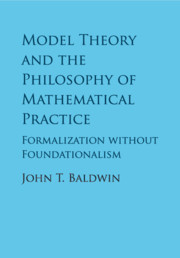Book contents
- Frontmatter
- Dedication
- Contents
- List of Figures
- Acknowledgments
- Introduction
- PART I REFINING THE NOTION OF CATEGORICITY
- PART II THE PARADIGM SHIFT
- PART III GEOMETRY
- PART IV METHODOLOGY
- 12 Formalization and Purity in Geometry
- 13 On the Nature of Definition: Model Theory
- 14 Formalism-Freeness (Mathematical Properties)
- 15 Summation
- References
- Index
12 - Formalization and Purity in Geometry
from PART IV - METHODOLOGY
Published online by Cambridge University Press: 19 January 2018
- Frontmatter
- Dedication
- Contents
- List of Figures
- Acknowledgments
- Introduction
- PART I REFINING THE NOTION OF CATEGORICITY
- PART II THE PARADIGM SHIFT
- PART III GEOMETRY
- PART IV METHODOLOGY
- 12 Formalization and Purity in Geometry
- 13 On the Nature of Definition: Model Theory
- 14 Formalism-Freeness (Mathematical Properties)
- 15 Summation
- References
- Index
Summary
In this chapter, we draw on our earlier analysis of the epistemological role of vocabulary (Chapter 1.2) as a tool for considering the question of whether/how formalization can be used to capture the notion of ‘purity of method’. Our attention was drawn to this topic by the papers of [Hallett 2008] and [Arana & Mancosu 2012]. We first use our perspective of the role of vocabulary to set out the mathematical issues involved in the study of Desargues’ theorem in a somewhat different way than theirs and to use the notion of explicit definition to investigate purity concerns. However, careful analysis (Chapter 12.5) of Hilbert's embedding theorem shows that even first order explicit definition can introduce impurities. This emphasizes the impotence of purely formal methods (such as logical and strong logical purity discussed in Chapter 12.3) to characterize purity. We see that to diagnose the impurity of Hilbert's embedding theorem one must consider the content of what is in fact a ‘formalism-free’ (Chapter 14) proof. The appendix to [Baldwin 2013a] provides what I argue is a pure proof.
We discuss the relation between the choice of vocabulary and basic axioms and the ‘content’ of a subject in Chapter 12.1. In Chapter 12.2 we lay out some of the mathematical background in terms of formal axiomatic systems to clarify the relation between the Desargues’ proposition in affine and projective geometry. This analysis is based rather directly on a first order axiomatization of geometry. Consideration in terms of Manders’ [Manders 2008] ‘diagram proofs’ would raise other pertinent issues. Chapter 12.3 analyzes several attempts to define the notion of purity and concludes that formalization can highlight impure methods but does not give a criteria for ‘purity’. In Chapter 12.5, we come to grips with the essence of Hilbert's work on Desargues’ theorem and assert the impurity of his argument that the three-dimensional proof is impure.
The discussion of purity below will make clear that the context of a proposition is crucial for the issues we are discussing. But, as discussed in Chapter 9, the notions of what geometry actually is have changed radically over the centuries. The distinction between the coordinate geometry of Descartes and synthetic geometry is crucial for our purposes. As [Arana & Mancosu 2012] makes clear the study of geometry in the late nineteenth century involved multiple dimensions, surfaces of various curvatures, and coordinate and coordinate-free approaches.
- Type
- Chapter
- Information
- Model Theory and the Philosophy of Mathematical PracticeFormalization without Foundationalism, pp. 261 - 282Publisher: Cambridge University PressPrint publication year: 2018

